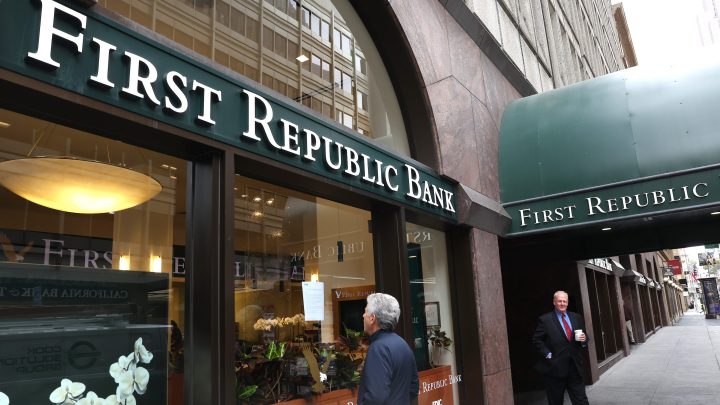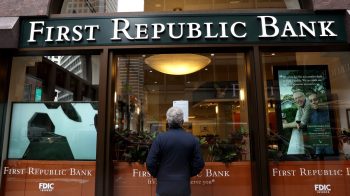
Acquire or be acquired may be the new reality for small and midsize banks
Acquire or be acquired may be the new reality for small and midsize banks

A year after the collapses of Silicon Valley Bank, Signature Bank and First Republic Bank, some corners of the banking system are still under pressure. Banks have to pay depositors a lot more interest than they used to, and some have troubled commercial real estate loans on their balance sheets.
That means many small and midsize banks are scrambling to figure out how to survive and compete in this economy. For some, that might mean they’ll have to get bigger.
There are more than 4,600 banks in this country, according to the Federal Deposit Insurance Corp.
“That is substantially more financial institutions than in any other country in the world,” said David Schiff, head of retail and consumer banking at the consulting company West Monroe.
Schiff said over the last year, all of those institutions have witnessed the impact of shaky commercial real estate loans and rising interest rates on deposits — they’ve made the business of banking riskier and more expensive.
That “really forced a lot of banks to look at themselves, particularly smaller banks, and say, ‘Is it worth the cost of admission to continue to operate independently, or should we be looking at alternatives?’” Schiff said.
The thinking is, maybe the U.S. doesn’t need 4,600 banks. Maybe they should consolidate by acquiring other banks or being acquired.
“There is definitely a strong industrial logic in favor of bank mergers,” said Meg Tahyar, head of the financial institutions group at the law firm Davis Polk. She advises banks on mergers and other operations, including JPMorgan Chase when it acquired First Republic last year.
Tahyar said that in general, bulking up can help smaller banks stay afloat. It makes it easier to compete against bigger ones for loan business and to improve the technology and services they offer customers.
“The demands for consumers to have digital services have increased, especially since the pandemic,” Tahyar said.
But even though a lot of smaller and midsize banks want to consolidate, we haven’t seen many deals in the last year. Tahyar said that’s in large part because bankers aren’t sure what regulators will do.
“It is very hard, and takes a very long time, to get an approval for any kind of merger,” Tahyar said. “And there’s a very high degree of uncertainty.”
Earlier this year, a senior federal bank regulator said the government is trying to make the approval process more transparent.
But Jeremy Kress, assistant professor of business law at the University of Michigan’s Ross School of Business, said even if more mergers happen this year, we shouldn’t necessarily expect the banking system to be more stable.
“When a bank is having trouble, making that bank bigger is often a risky strategy,” Kress said. “What they may be doing is just kicking that financial stability problem down the road.”
Kress said he’s also concerned about what will happen to borrowers — especially small businesses — if there’s a wave of bank consolidation.
“Having those local relationships with locally based bankers is absolutely critical for entrepreneurs,” Kress said. “And that’s what I’d worry that we’d lose when small banks consolidate.”
In other words, Kress said 4,600 banks might not be too many when you think about how many communities they serve.
There’s a lot happening in the world. Through it all, Marketplace is here for you.
You rely on Marketplace to break down the world’s events and tell you how it affects you in a fact-based, approachable way. We rely on your financial support to keep making that possible.
Your donation today powers the independent journalism that you rely on. For just $5/month, you can help sustain Marketplace so we can keep reporting on the things that matter to you.

















